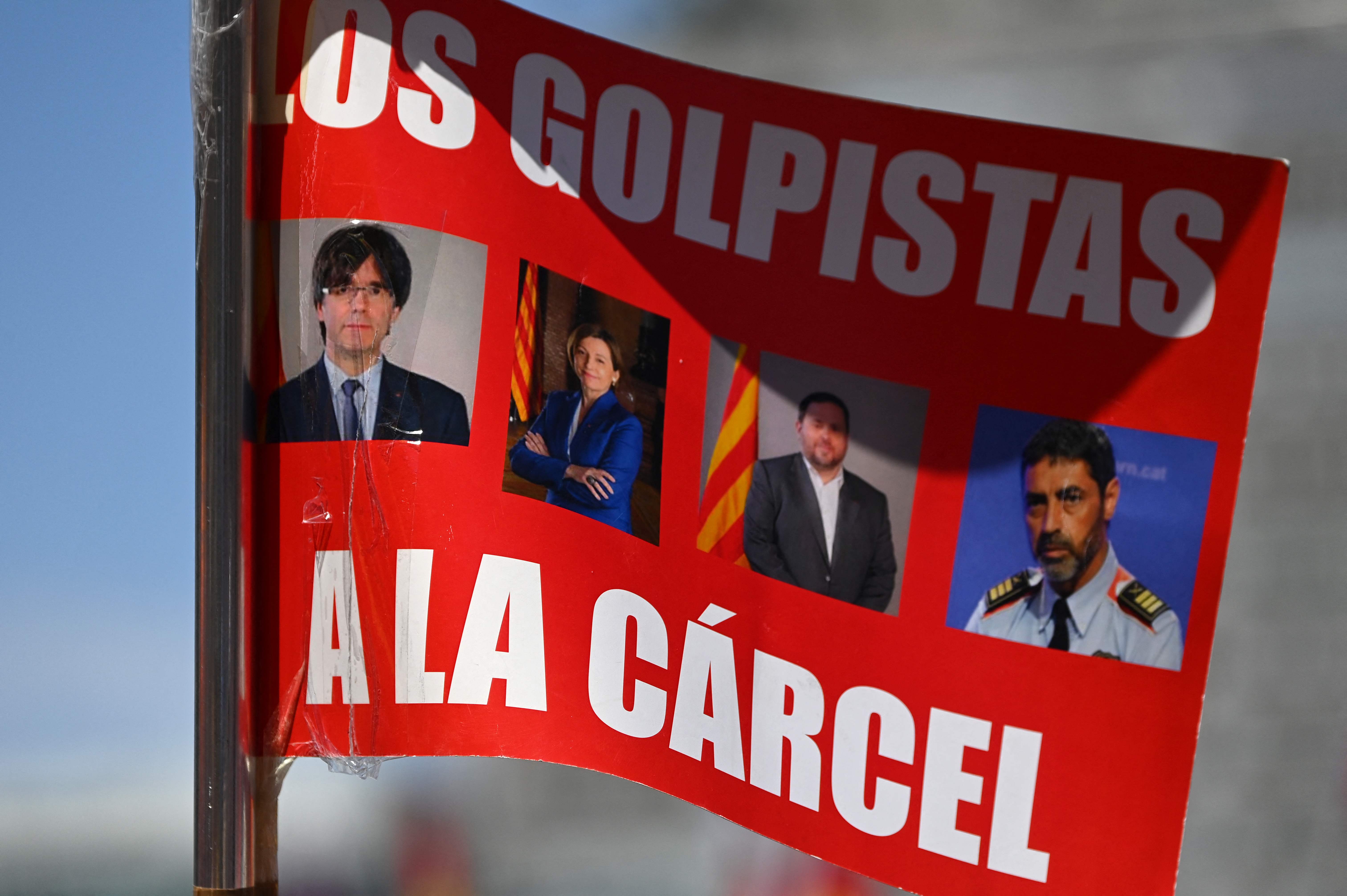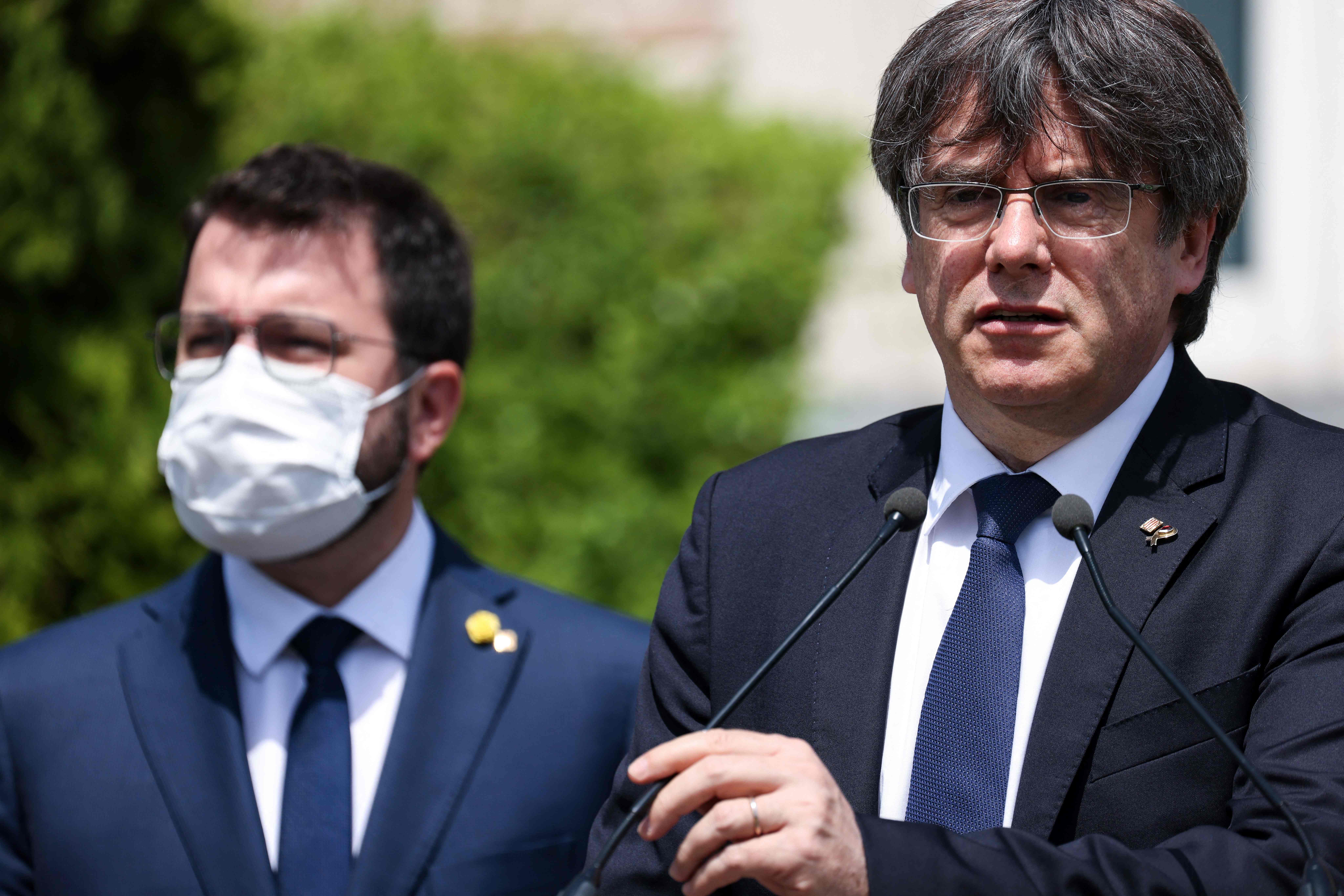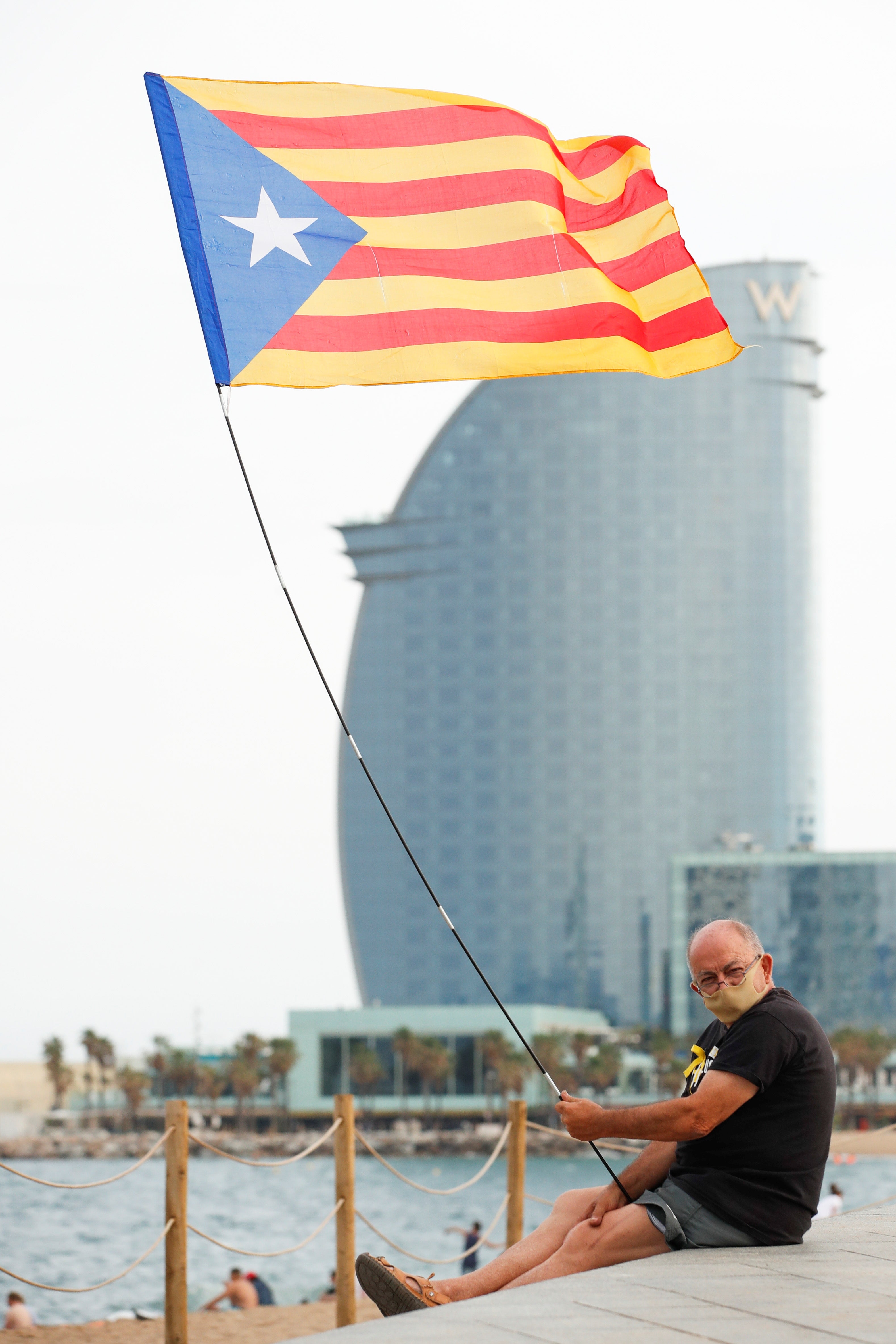Spanish PM goes to opera house to make dramatic announcement on Catalan separatists
Pedro Sanchez is set to pardon nine jailed Catalan leaders who tried to split from Spain in 2017, reports Graham Keeley


Maria Callas and Placido Domingo are among those who have performed in the opera house where the Spanish prime minister will on Monday seek to explain the most dramatic gambit of his political career.
Pedro Sanchez is to take to the stage at Barcelona’s Gran Teatre del Liceu to spell out why he is about to pardon nine jailed Catalan separatist leaders, in a move designed to defuse political tensions that have divided the country for years.
Spain’s leftist government is expected to formally pass the pardons of the convicted Catalan leaders on Tuesday at a cabinet meeting, but the initiative, which is designed to restart dialogue between Madrid and Barcelona, has proved highly divisive.
The Catalan National Assembly (ANC), a large pro-separatist civil organisation, is planning a demonstration outside the opera house, insisting that Madrid should grant all the convicted prisoners amnesty.
On the other side of the political spectrum, leaders of the conservative People’s Party (PP), the far-right Vox, and the centrist Ciudadanos joined a demonstration of 25,000 people in Madrid last week against the pardons, claiming they are illegal and harm national unity.
A series of polls have shown that almost two-thirds of Spaniards oppose the controversial move.
About 63 per cent of Spaniards are against granting the pardons, while 25 per cent are in favour of doing so, according to a poll published last week for niusdiario.es, a Spanish online newspaper.
In 2019, nine Catalan separatists were handed prison sentences of between nine and 13 years for sedition. Three others were found guilty of disobedience but were not imprisoned.

All were convicted over their roles in a 2017 independence referendum that was later declared illegal by Spain’s Constitutional Court, and a failed declaration of independence days later. The ill-fated bid to split from Spain caused the deepest political schism since a failed military coup d’etat in 1981.
The Spanish government is expected to grant partial pardons to the nine activists and politicians, meaning they can leave jail but cannot take up public office for a period of time. If they re-offend, they will be returned to prison. Three others have completed their sentences.
Carles Puigdemont, the former Catalan president, who fled hidden in the boot of a car days after the 2017 referendum, is now a fugitive from Spanish justice in Belgium, and as such will not benefit from the pardons.
Analysts say Mr Sanchez’s decision may mark a turning point in a long-running territorial dispute with separatists in the wealthy northeastern region of Spain.
Esquerra Republicana Catalana (Catalan Republican Left), the moderate Catalan nationalist party that heads the regional government, is likely to support Spain’s minority coalition government in return for the pardons being granted.
Pere Aragones, the Catalan regional president, said the pardons were a “first step”, but that only a Scottish-style agreement between Barcelona and Madrid to hold an independence referendum would give Catalans the chance to express their will.
However, the hardline Junts per Catalunya (Together for Catalonia) party, along with the ANC, fear this move will help Spain escape international censure for clashes between police and voters during the 2017 referendum and for what they claim is continued persecution of activists through the courts over the illegal poll.
They also fear that the Catalan leaders being freed from jail will undermine support for their cause.

Elisenda Paluzie, president of the ANC, tweeted that the pardons “would be a smart political decision by the Spanish government ... because they would dismantle us politically”.
A poll published last month for La Vanguardia, a Barcelona newspaper, found that 52 per cent of people surveyed were against independence, while 42 per cent supported splitting from Spain, suggesting an increase in the number of people who oppose secession.
Mr Sanchez told business leaders on Friday that the pardons would heal wounds and help the Catalan economy, which normally contributes nearly 20 per cent of Spanish GDP.
“We must return to the point where we stopped talking to each other. We must meet again, because there are many more things that unite us than separate us,” he said.
However, the Supreme Court, which convicted all 12 Catalan leaders, advised the government against issuing the pardons. In a non-binding ruling last month, the judges said they saw no reason for leniency because those in prison had not shown “the slightest trace of remorse”.
Lluis Orriols, a political science professor at Carlos III University in Madrid, believes Mr Sanchez will weather the initial political storm over freeing the Catalan prisoners.
“In Catalonia, most people are against these people being in prison so this will definitely help cool tensions there,” he told The Independent.
“In the long-term, even if Sanchez loses some support from within his own party, he will have the Catalans to help keep him in power until the next election in 2023.”
According to a poll published on Friday for the state-run Commission for Sociological Investigations, some 27.4 per cent of voters backed the Socialists, 23.9 per cent the PP, 13 per cent Vox, 12 per cent the far-left Podemos, and 5.7 per cent Ciudadanos.
Join our commenting forum
Join thought-provoking conversations, follow other Independent readers and see their replies
Comments
Bookmark popover
Removed from bookmarks